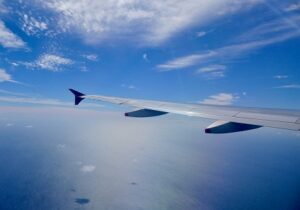 It’s the news nobody wanted to hear – Australia’s external borders are likely to remain closed throughout this year, presenting the travel industry with enormous and prolonged challenges. Yet hope remains for travel across the Tasman.
It’s the news nobody wanted to hear – Australia’s external borders are likely to remain closed throughout this year, presenting the travel industry with enormous and prolonged challenges. Yet hope remains for travel across the Tasman.
Australia’s Chief Medical Officer, Brendan Murphy, was asked yesterday whether borders could reopen this year.
“I think that that is a big question,” he told ABC TV.
Then he acknowledged frankly: “I think that the answer is probably no.”
“I think that we’ll go most of this year with still substantial border restrictions – even if we have a lot of the population vaccinated, we don’t know whether that will prevent transmission of the virus.
“And it’s likely that quarantine will continue for some time. One of the things about this virus is that the rule book has been made up as we go.”
The main problem, epidemiologists explain, is that although vaccination will stop people developing the Covid-19 disease, they may still become infected with the virus that causes it, SARS-CoV-2. Vaccinated travellers might head overseas, pick up the SARS-CoV-2 virus in their system, stay well, and while showing little or no symptoms (because of the vaccine) carry the virus home to Australia and potentially pass it on and spark a new outbreak of Covid-19. This means that Australia will need to achieve herd immunity, with mass vaccination, before international travel can resume safely without requiring quarantine on return to Australia.
Murphy’s forecast is grim news for people wanting to travel overseas, let alone for airlines and thousands of travel agents throughout Australia.
One ray of sunshine remains on the horizon: New Zealand.
If Australia can eliminate Covid-19, there is no reason people shouldn’t be able to fly between Australia and New Zealand. The risk of picking up the virus at hub airports, or foreign destinations, disappears.
New Zealanders can already fly to Australia without needing to enter quarantine, because their country has eliminated the Covid-19 coronavirus. Once this becomes mutual, airlines should be able to resume trans-Tasman services relatively rapidly. The aircraft that fly the Tasman are the same type that operate Australian domestic services. Airlines may demand as a backstop that passengers provide proof of vaccination and test negative, but that will be no problem for most people when the vaccines roll out (they start next month).
Pent-up demand for travel is enormous in both directions. At the moment, Kiwis flying to Australia can enter without quarantine – but they must do two weeks hotel quarantine at their own expense when they fly back home.
A couple of weeks ago, Qantas reopened bookings for international flights beyond 1 July 2021, anticipating the resumption of flights to Asian destinations, including Singapore, Hong Kong and Japan.
There is no guarantee, however, that Australia will let its citizens out of the country by that date, as Deputy Prime Minister Michael McCormack made clear last week.
“International borders will be opened when international arrivals do not pose a risk to Australians,” McCormack said.
Australian citizens and permanent residents are currently forbidden to leave Australia without a government permit, and (if a permit is granted) they must do two weeks hotel quarantine at a cost of $3000 when they return to Australia, unless they have only visited New Zealand.
While citizens of other countries are not “held prisoner” in such a manner, Australia has done such an exemplary job in keeping Covid-19 numbers down, it’s hard to knock success.
Written by Peter Needham















